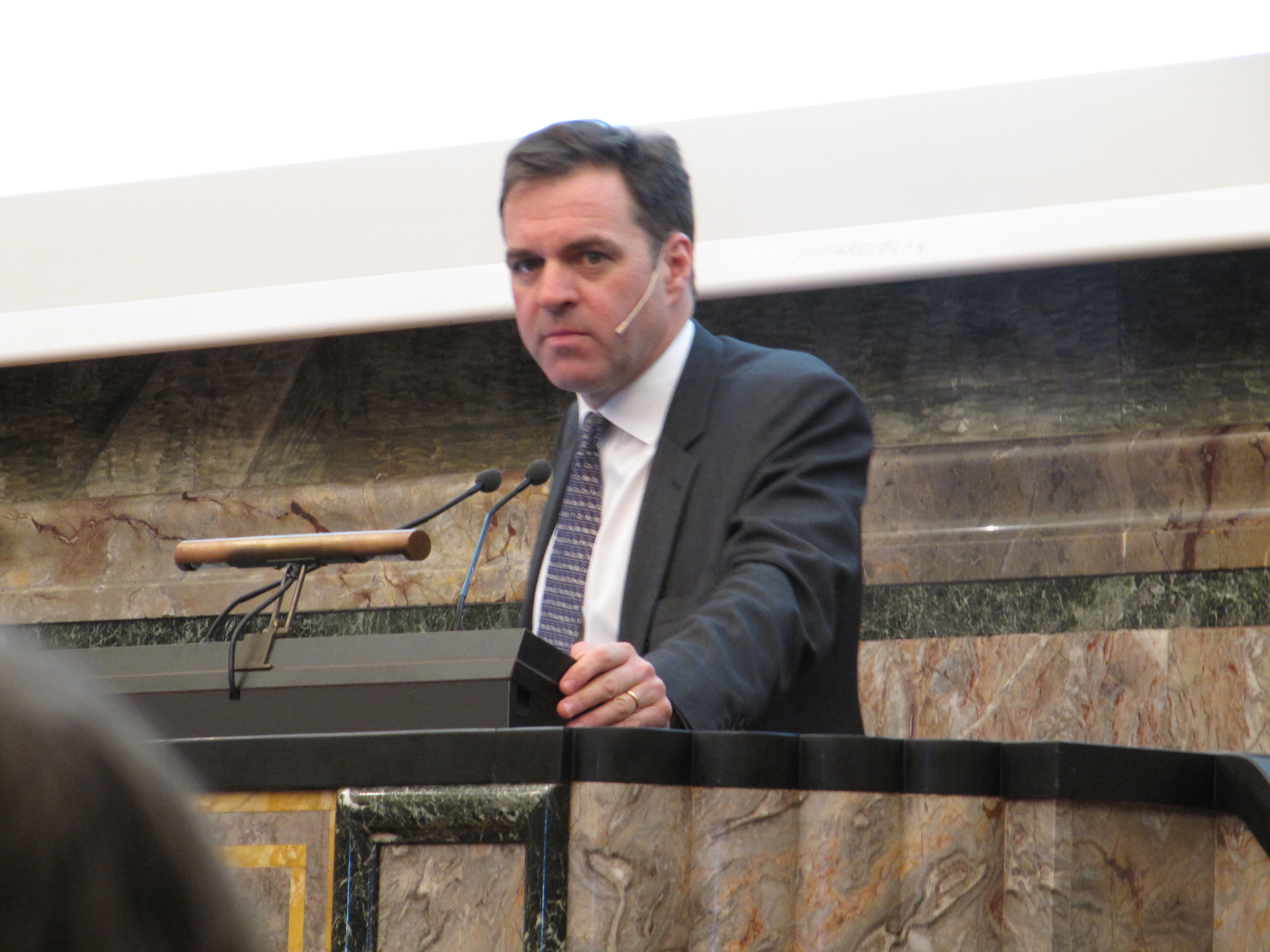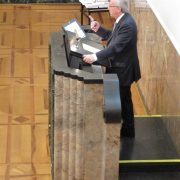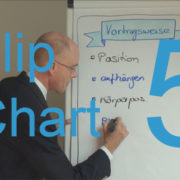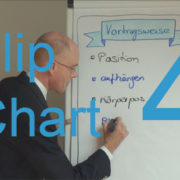Niall Ferguson: A rhetorical analysis of a rhetorical masterpiece
Can Europe collapse? And might America be next?
University of Zurich, Auditorium, KOL-G-201, Jan. 30, 2012
Prof. Dr. Niall Ferguson, Professor of History at Harvard University and Oxford University
In my humble opinion, Niall Ferguson is a master of public speaking. Or so he was at his lecture in Jan. 30, 2012 at the Swiss Institute of International Studies. He did practically everything a good speaker and orator should do. His material, delivery and setting were perfect. Rarely do we hear someone in Switzerland that speaks as well as he does.
First of all, he spoke almost without notes. Only barely did he peek at them, only every two minutes, or so it seemed. I particularly enjoyed seeing someone who owned his content. It came right from the heart. No searching for words or thoughts. All smooth and continuous just like the water flow from a water fountain. Some would say he spoke so well in spite of not using PowerPoint. I say he spoke so well because he DIDN’T use PowerPoint.
He spoke in an auditorium where Winston Churchill spoke in 1946. Churchill then said „Let Europe arise.“ Ferguson referred not only to that sentence (unfortunately Europe seems to go the other way), but also referred several times to Churchill with quotes and analogies.
Ferguson started his speech in fluent German. Then switched to English. Obviously I was impressed that a Scotsman would speak, forgive my ignorance, any foreign languages at all. Also forgive me due to my American heritage when I say he spoke with a bearable accent, albeit somewhat British. Clearly, slowly, with pauses. He must be a university professor – but a good one. Jokes aside, he articulated like Demosthenes after practicing with the marbles, his use of words was varied, his analogies to the point, Ferguson even used voice variation when he imitated Churchill’s voice.
His opening words were closely followed by a joke. As is customary and almost a must in the Anglo-Saxon world. And recommended for other countries and languages too. Just as speech coach Darren La Croix says, or words to that effect: „Just after the laughter is the best moment to spoon feed your audience with your message.“
Ferguson also expertly connected to recent events, i.e. the World Economic Forum WEF in Davos. An event that was fresh in the minds of most of the audience members.
Expertly, Niall Ferguson used the analogy of killer apps to explain what made Europe such a power house for 500 years. The killer apps were (1) the principle of competition, (2) the scientific revolution, (3) the rule of law, (4) medicine, (5) the consumer society, (6) the work ethic. He claims that while Asia in particular is implementing these killer apps (they downloaded them), Europe and the West is in the process of deleting them.
„What is one of the main reasons why (also) the US is on a downslide? Because they used to have the rule of law. Now they have the rule of lawyers.“
Prof. Ferguson was also master of the Q&A session. He even managed to incorporate the sound of the siren of a passing police car into the answer of one of the questions.
No need for a Skipwith radar chart. He gets 10/10.
If he has a fan club: He can count me in.
Listen to the speech at www.siaf.ch.
Interested in public speaking? Check www.thomas-skipwith.com for training and coaching.













Alas, the podcast of his speech does not work, It seems there was a problem with the recording.
Dear Paul, I tried the link just now. It works on my Windows 7 64 computer with Windows Media Player.
Best wishes
Thomas
Ich kann mich obiger Analyse „nur“ (in a humble manner) anschliessen
Edgar
Thomas
I agree wtih your commentary. Not only the encyclopedic knowledge of Ferguson is to be commended, but also the delivery of his speech is quite persuasive. I particularly like his tempo. By the way, the link above does not work, so here is an alternative:
http://www.siaf.ch/de/vortrag.php?idvortrag=167
Thanks for the analysis. I look forward to listening to the speech, as it sounds fascinating.
A while back I did a detailed critique of a TEDx talk on body language, which you might enjoy. (Comments are always welcome!)
Hi Craig,
thank you for the link to a speech both worthwhile for the content and your critique.
One additional comment about Allan Pease’s speech: It seemed to me that the person he asked to come to the stage wasn’t made very comfortable.
Best wishes
Thomas